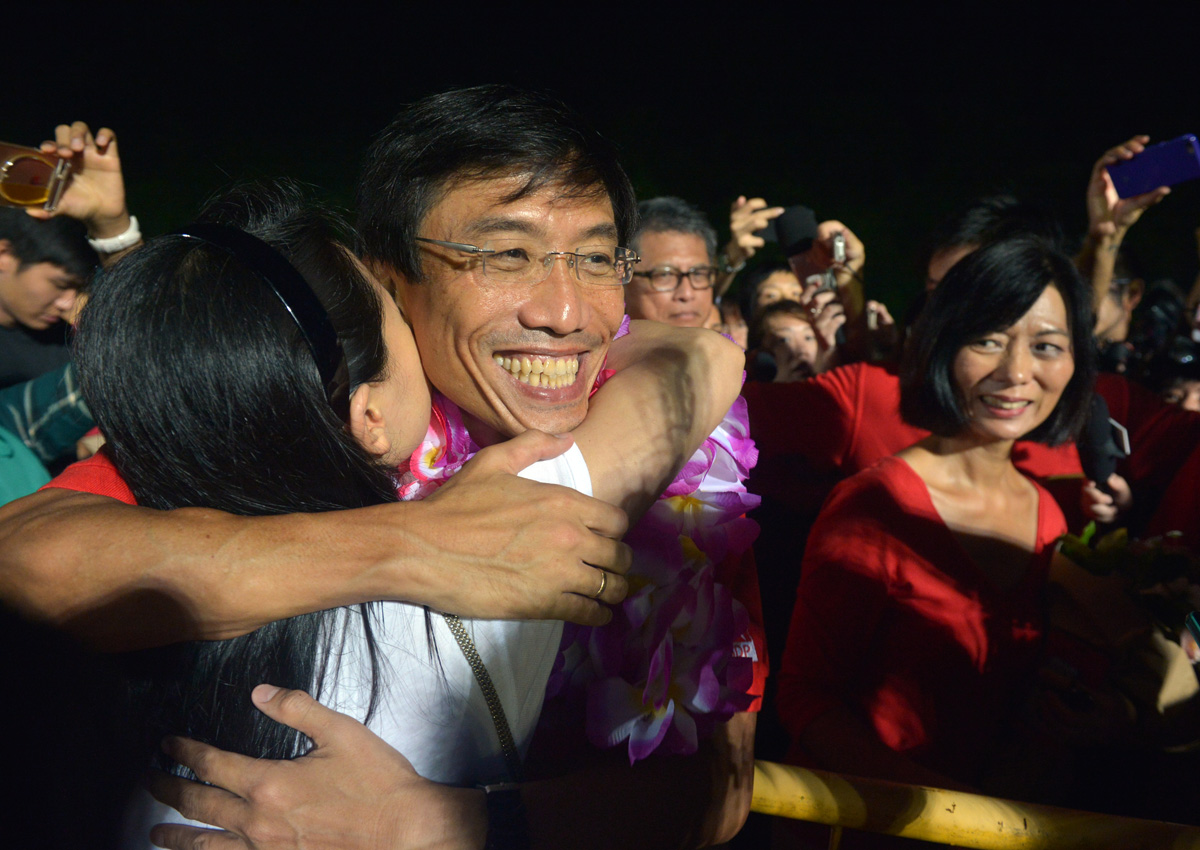The circumstances were as good as they could have been for Singapore Democratic Party (SDP) chief Chee Soon Juan to finally win at an election. But in the end he still fell short in his fifth bid to enter Parliament.
The Bukit Batok by-election began, after all, with the People’s Action Party (PAP) dented by the resignation of its MP David Ong over an alleged affair.
Since his stepping down on March 12, the SDP has had close to two months to strategise, focus and deploy its considerably experienced political machinery into a geographically compact constituency that would not overly stretch the resources of any sizeable party.
Opposition parties have also previously complained that they are sometimes stopped from undertaking house visits in condominiums. But with over 95 per cent of Bukit Batok residents living in public housing, the SDP had no bar on reaching out to the overwhelming majority of eligible voters.
What Dr Chee also had going for him this time was the so-called by-election effect – where voters have tended to be more willing to back the opposition candidate because the ruling party is in no danger of losing power.
Finally, the PAP, which has long argued that Group Representation Constituencies are needed in order to ensure minority representation in Parliament, took the chance of losing some votes when it opted to field a minority candidate.
Given all these factors, Dr Chee’s 38.8 per cent of the vote last night will come as a disappointment. Despite it being his best showing at the polls, it was a comfortable victory for the PAP – and its first in the three most recent by-elections.
But there are some silver linings for Dr Chee.
He managed to engineer a 12.4 percentage point improvement on the SDP’s performance in Bukit Batok from last year’s general election. Dr Chee’s vote share was also just shy of the SDP’s hopes for a strong performance – of at least 40 per cent or more – so it could have a solid foundation of support to build on for the next general election.
Anything less would have called the electability of the party’s long-time standard bearer into question despite Dr Chee shedding his combative image and adopting a more moderate tone.
But doubts about whether voters would buy into that change began to show at last year’s polls. Even though he drew large crowds to rallies during GE2015 and there were long queues for his book signings, his Holland-Bukit Timah GRC team garnered just 33.4 per cent of votes.
Now just eight months later, he has managed a better showing – in a different constituency and in the absence of last year’s 9.8 percentage point national swing to the PAP – although not quite enough to secure a seat for himself and his party.
But it is clear that Dr Chee’s political past and the character issue will not fade, and is something that he will have to contend with in future elections that he contests.
The PAP has shown that it will continue to question his suitability for elected office based on his past actions and brushes with the law.
Even though the SDP labelled these as personal attacks and “character assassinations”, last night’s result suggests that the character issue continues to have some traction with voters.
And he certainly did not help his own cause by misinterpreting government data – such as on jobs for locals – and presenting a skewed picture of employment at his rallies. The episode may have given discerning voters cause to pause and consider that, perhaps, there is some truth in the PAP’s position that voters should not trust him.
The SDP may also rue, on the character issue, that it took the moral high ground rather than go on the attack to ask why this by-election was triggered in the first place.
Although Dr Chee has fallen short at the ballot box once again, the result is unlikely to affect his position as the SDP’s undisputed leader.
There is no one else in the party who has the same degree of visibility and profile with the public. Infectious diseases expert Paul Tambyah, regarded as the next leading figure, has stood by Dr Chee and has not shown any indication that he will mount a leadership challenge.
So, in the end, the status quo of Singapore’s political landscape has been preserved. A win for Dr Chee would have been the first step of a comeback for the SDP, which was once the top opposition party with three elected MPs in the 1990s.
Dr Chee’s presence in Parliament could have made things difficult for the PAP, and for the Workers’ Party (WP), which made a breakthrough in 2011 by winning a GRC.
He repeatedly argued that he should be elected as the House needs an effective opposition voice, implicitly suggesting that the WP’s MPs are anything but.
But with his loss, the WP’s status as the only opposition party with a parliamentary presence stays intact. For now.

This article was first published on May 8, 2016.
Get a copy of The Straits Times or go to straitstimes.com for more stories.












































































